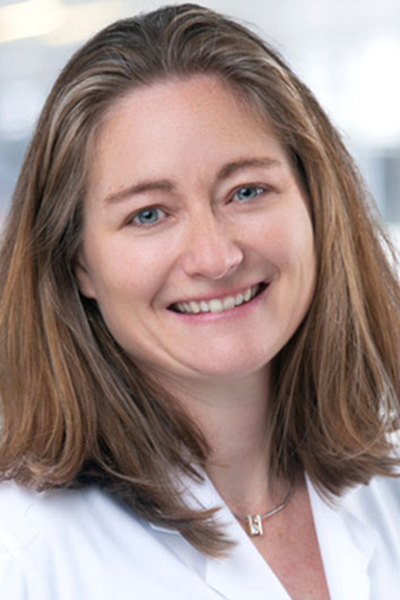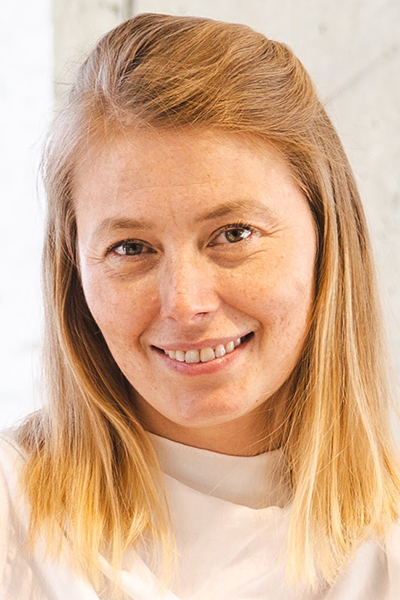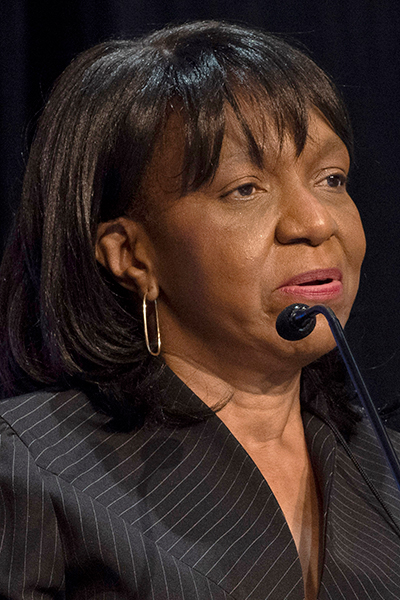Since the 1990s, the San Antonio Breast Cancer Symposium® has developed a reputation for being extremely accessible to individual patient advocates and supportive of their respective organizations. In 1998, the SABCS® was the first research-based meeting to encourage patient advocate attendance. Compare that with 2023—the SABCS® hosted 617 patient advocates to learn from the 1,886 accepted abstracts.

“The SABCS® is a huge supporter of patient advocacy,” said SABCS® Program Director Kate Lathrop, MD, of the Mays Cancer Center at UT Health Science Center San Antonio. “We offer discounted registration, provide an advocacy lounge for enhanced networking, and support a long-term advocate training program. In addition, patient advocates are included as faculty in a large number of sessions.”
Advocates attend the SABCS® year in and year out to learn the latest about research developments, practice-changing data, and what’s on the horizon for breast cancer care. Advocates also attend, however, to be active participants in the scientific dialogue, bringing the patient experience to the forefront.

“Of course we learn a great deal of science, but we also bring critical lessons from the patient community to share with the scientific community,” said Julia Maues, MA, who is a member of the SABCS® Program Planning Committee, a patient advocate, and co-founder of advocacy organization GRASP.
To see the success of advocate involvement in driving research, attendees need only look to the Plenary Lecture about investigating racial disparities, a topic that has long been championed by the advocacy community. Melissa B. Davis, PhD, the director of the Institute of Translational Genomic Medicine at Morehouse School of Medicine, will present “The Grand Challenge of Unraveling Social vs Biological Drivers of Racial Disparities in Cancer Outcomes” from 8:30 a.m. – 9:30 a.m. Thursday, December 12.
“I’m thrilled about the Plenary Lecture by Dr. Melissa Davis. She’s an outstanding researcher who is doing important work on how genetics, environment, and social factors influence cancer outcomes,” said Maues, who has been attending SABCS® since 2018. “Dr. Davis’ research is not only helping us understand these connections better but is also driving important changes in how we approach cancer treatment and prevention.”
This year’s meeting also boasts a new Patient Advocacy Pavilion, housed in the Exhibit Hall. The Pavilion, a prominently featured area designated for nonprofit patient advocacy organizations, is meant to foster networking across organizations, as well as with individual researchers and industry professionals.

“In my early years of attending SABCS®, there was only a limited number of advocacy organizations in the Exhibit Hall. Now, there are a significant number including those that focus on different subtypes of breast cancer, such as metastatic disease, and different genetic drivers,” said Thelma Brown, BSc, also a member of the SABCS® Program Planning Committee, patient advocate, and member of the Breast Cancer Working Group at the University of Alabama at Birmingham.
Brown, who has been active at the SABCS® since 2012, is looking forward to the whole 2024 SABCS® program, but she especially finds value in the View from the Trenches session, which will be held from 5:30 p.m. – 7 p.m. Friday, December 13.
“Panelists from this session expertly sum up the immediate clinical implications of the latest SABCS® findings, as well as any potential paradigm-shifting therapies in the pipeline. ‘What’s next?’ is the question that is always on the minds of patients, so this session offers some answers,” Brown said.
The SABCS® also sets aside space for advocates to connect with and learn from each other in a more intimate setting. The Patient Advocate Lounge, supported by Lilly, is a designated space in Room 225B of the Henry B. Gonzalez Convention Center where advocates can network, relax, and refuel with snacks and beverages.
In addition, several organizations, including the Alamo Breast Cancer Foundation and GRASP, will hold their own events or training programs for patient advocates in parallel with the official symposium.
“My reasons for returning to SABCS® each year are many but, at the core, I am reminded of the significant progress made in breast cancer therapy over the short and long terms. The meeting also highlights the ongoing need for more effective, less toxic therapies and to address disparities in research and care. Each year I leave inspired and committed to make a meaningful impact through patient advocacy,” Brown said.
2024 SABCS® full program now available
Don’t miss the latest clinical trial findings and multidisciplinary discussions on every aspect of breast cancer and premalignant breast disease. The online program for the 47th annual San Antonio Breast Cancer Symposium® has been updated with session titles, presentation topics, and other details, including a list of the nearly 2,000 posters that will be presented during the week. Start planning your itinerary today!

